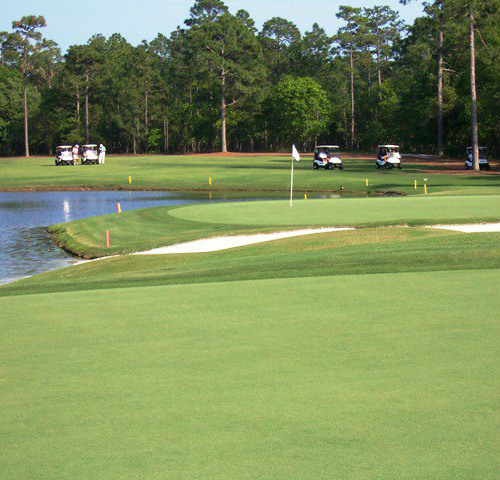
Over the last several years many golf courses in the transitional zone have converted their greens from a cool season Bentgrass to a warm season dwarf Bermudagrass. Two courses within our McConnell Golf family have followed that trend. The Reserve at Pawley’s Island changed over two years ago, and Sedgefield Country Club in Greensboro is near completion of their greens conversion. There are many advantages to using these new dwarf Bermudagrasses in this region, and I hope to shed some light on why this is becoming the hottest grass for greens in the Carolinas.
The leading reason for the new Bermudas’ rising popularity is that they produce an outstanding putting surface during the heavy play summer months. Studies of weather conditions and growth habit have proven Bermudagrass yields better quality greens for about 30 more days a year than Bentgrass. Bermuda greens are firmer, faster and have a more consistent ball roll over a longer period than Bent. Even when Bermuda goes dormant in the winter months the firm putting surface remains.
Bermudagrasses provide other benefits. Aerification can be postponed until after the peak playing months and the greens will recover more quickly. Unlike Bent, Bermuda requires fewer chemicals to be applied to the greens surface, and hand watering greens during play on a hot summer afternoon is not necessary. With these new Bermudas there are fewer ball marks on the greens during the summer months, and greens speeds can be maintained at a more consistent level throughout the year. Even with these advantages, Bermudagrass is still a living entity; so much care will be needed to maintain a green surface. I hope at some point you get the chance to tee it up at one of our facilities with Bermudagrass greens and see how good they can be.